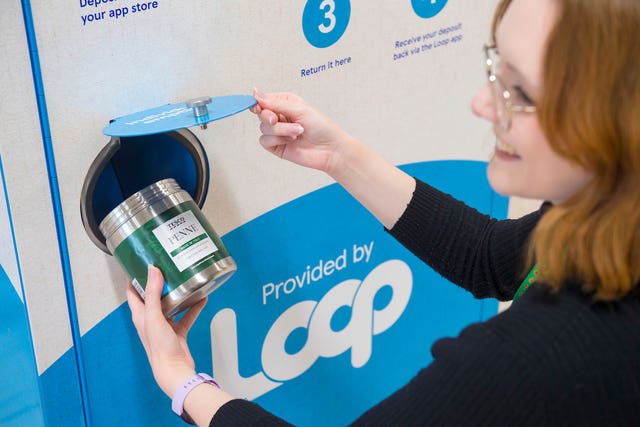
Richard Spurr 1am - 4am
20 September 2021, 00:04

Retailers and recycling charities have said shopper demand for items without plastic wrapping declined after the pandemic hit.
The pandemic has “knocked back” efforts to reduce plastic food packaging, retailers and recycling charities have said.
Industry experts have said customers moved away from unpackaged produce because of the virus and sales of these items have still not recovered to pre-pandemic levels.
Supermarket chains and food brands have made a flurry of announcements about initiatives to reduce and improve packaging, as well as to minimise waste ahead of Recycling Week, which begins on Monday.
Specialist grocer Planet Organic and recycling charity Wrap both told the PA news agency that customer concern over the virus stifled efforts to reduce packaging in the grocery sector.

Al Overton, buying director at Planet Organic, said that customers sought comfort in greater levels of packaging in the short-term after the virus hit, although demand for unpackaged and sustainable options were “recovering well”.
The retailer, which has 11 UK stores, was one of the first to remove plastic bags and has offered refill services in its stores for ten years.
“We were going in a really good direction with our unpackaged lines but there was a very significant change in feeling after Covid,” he said.
“Covid has essentially knocked back that because people started to worry about the virus, worry about who might have touched that piece of fruit or who could have breathed on those nuts.
“The pandemic has been pretty terrible for the amount of packaging on products because people associated confidence in health safety with something being triple wrapped in plastic with a seal on it.”
Wrap’s Helen Bird said the charity has seen a similar pattern in consumer behaviour.
She said: “Speaking with retailers, they have highlighted a reduction in sales of unpackaged fruit and vegetables due to Covid which still has not reverted back to pre-pandemic levels.”
Ms Bird added that the major supermarkets have made positive strides in recent years regarding packaging but stressed that they “must continue to use their influence” to help promote further progress.
The charity’s strategic engagement manager said she believes retailers have a particularly important role in enabling customers to recycle or reuse items.
“There has been so much innovation in recyclable materials, which has been incredible positive, but it pointless if there waste cannot easily reach somewhere it can be collected,” she said.
“We work with waste operators to ensure they are making progress too, but I think supermarkets have also been really positive about creating more collection points for recyclable products they sell.
“A lot of problems happen at the consumers end, with them throwing something recyclable in the normal bin because it isn’t obvious how or where it can be recycled.”

On Tuesday, Morrisons announced plans to trial six “zero waste” stores which aim to recycle all packaging and unsold food by 2025.
Meanwhile, grocery rival Tesco said it is introducing a shopping service called Loop to ten stores. This allows people to buy products from laundry detergent to ketchup in refillable packaging.
Tesco has teamed up with major brands including Coca-Cola, Heinz and Brewdog for the scheme. Customers pay a deposit that is refunded when the packaging is returned.
Mr Overton stressed that collaboration between retailers and suppliers was “invaluable” to encouraging customers towards more sustainable options.
“Personally I think the carrot works better than the stick. If retailers and brands make things fun and can create an experience, then more people will use that alternative,” he said.
“The customer interest is there without there being a need to purely force people to make more sustainable decisions.”